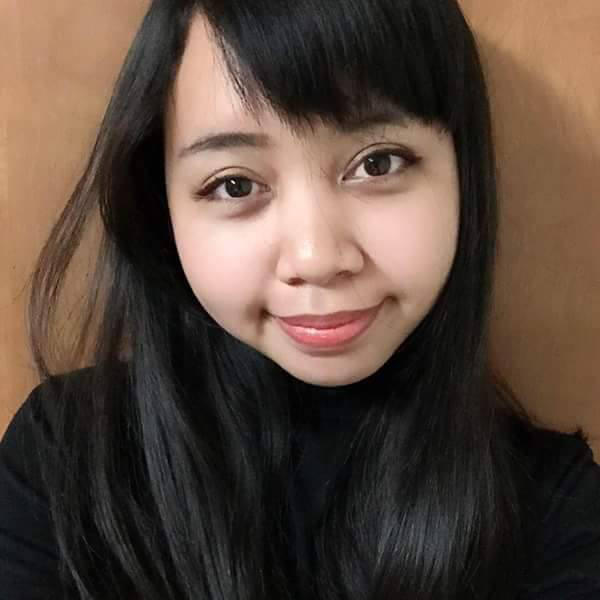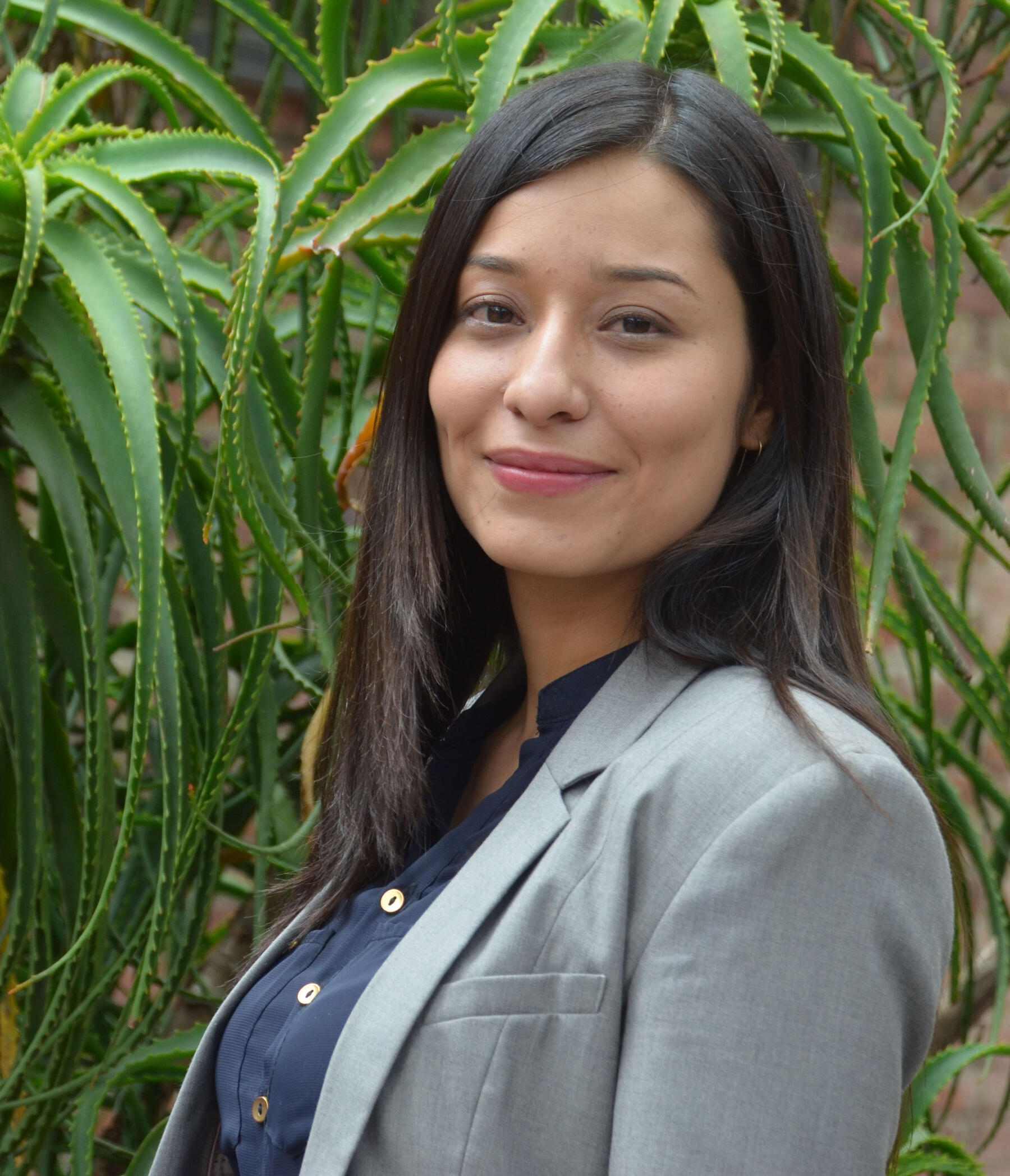April 7, 2016
‘My country needs me’: Trio of Fulbright students working to improve medicine back home
Share this story
Soon after realizing her dream of becoming an assistant professor at King Edward Medical University in Pakistan, Javeria Aijaz, MBBS, noticed a startling deficiency at the medical institution that is renowned in her native country.
“Despite being a top-ranked university, there was hardly any research work being done,” she said. “There is such a great need.”
She knew earning a Ph.D. in human and molecular genetics would put her one step closer to helping her country research and fight disease. With limited educational opportunities in this field available in Pakistan, she turned to the United States.
Aijaz applied for a Fulbright scholarship, which enables graduate students, young professionals and artists from abroad to study and conduct research in the U.S. and for their counterparts in the U.S. to study and research abroad. When she received word last year that she was accepted into the program, she was overwhelmed.
“I’m so thankful every day that I’m in this position to help my country,” she said.
The Fulbright Foreign Student Program operates in more than 155 countries worldwide. Approximately 4,000 foreign students receive Fulbright scholarships each year. Once students are accepted, the merit-based program helps match them with universities that best meet their needs.
For Aijaz, that meant the School of Medicine at Virginia Commonwealth University. She arrived on the MCV Campus in the fall and will remain in Richmond for the next four to five years while completing her Ph.D.
My country needs me.
“I’ll then return home,” she said. “My country needs me.”
Aijaz is not alone in her quest. Two other Fulbright scholars are on campus. Gladys Langi, from Indonesia, and Viviana Rodriguez, from Colombia, also are on a mission to improve medicine in their home countries. All three are enrolled in degree programs within the School of Medicine.
“To have three Fulbright scholars at the same time is pretty exciting,” said Jan Chlebowski, Ph.D., associate dean for graduate education in the School of Medicine. “It’s definitely a unique set of circumstances we have not seen before.”
A handful of Fulbrighters have been enrolled at the VCU School of Medicine in the past, but in Chlebowski’s 38 years on campus, he’s never seen three in the same year.
“We’ve had more exposure in the international arena,” he said. “As that footprint has grown, awareness and appreciation of VCU as a potential destination has grown. Remember that for these students English is not their first language. Everything they do is even more of a challenge. They are managing it very well. These students are amazing.”
Meet the School of Medicine’s trio of Fulbright scholars:
Javeria Aijaz
Growing up in Pakistan, Aijaz thought she would study engineering, but her father encouraged her to take the medical route. She earned her medical degree from Punjab University in 2002, and then completed a fellowship in hematology at the College of Physicians and Surgeons.

She was named assistant professor at King Edward Medical University in 2009 and joined the GIZ Health Sector Support Program’s Safe Blood Transfusion Project two years later. Since its inception, SBTP has delivered a series of improvements that have significantly contributed to blood safety standards.
“I learned that in a resource-strained country like Pakistan, safe blood transfusions would not be possible without eliminating preventable, transfusion-dependent genetic diseases,” she said. “The experience strengthened my desire to promote research in genetics as a public health measure.”
With her three children growing older, Aijaz decided the time was right to apply for the Fulbright program and pursue her Ph.D. Her husband and children remain in Pakistan but are applying for visas so they can join her here.
“I knew now was the time to make the move, otherwise it would be too late,” said Aijaz, 36. “I miss my family terribly, but there is a lot of pressure here at school to take my mind off that.”
Some of the challenges facing Aijaz are sophisticated labs and technology.
“Javeria had all this clinical knowledge when she came, but had not worked in a lab,” said Joyce Lloyd, Ph.D., vice chair of education for the Department of Human and Molecular Genetics. “She was not fazed at all about that. She’s always craving more information and has really shined.”
Gladys Langi
After earning her bachelor’s degree in microbiology from Bandung Institute of Technology in Indonesia, Langi dreamed of a career in human genetics.

“Then I thought, do I really want to do this?” she said. “I decided to work first before returning to school.”
She joined the Mochtar Riady Institute for Nanotechnology as a research assistant in the Single Nucleotide Polymorphisms laboratory. For two years, she searched for genetic variants in transforming growth factor beta receptor genes and their association with liver disease progression. With her interest in genetics growing deeper, she knew more education was a necessity.
Langi is on the MCV Campus pursuing her master’s in human and molecular genetics. She hopes to one day earn a Ph.D. in the same field.
“She has such a work ethic,” Lloyd said. “She’s a very high achiever academically. She has clear goals and is committed to them.”
Langi plans to return to Mochtar Riady as a principal investigator, focusing on complex diseases such as substance abuse and cancer.
“I want to be a scientist studying the genetic profile of Indonesian people,” Langi said. “We have limited knowledge of that.”
While Langi, 27, misses her family, Skype and social media have helped keep her in touch. She’s also making new friends here. She has joined study groups, and the school’s international office matched her with a volunteer who is making the transition to a new culture a smoother one.
“I was worried at first because this is my first time living abroad away from my family,” she said. “I find Richmond is such a great place full of diversity and the people are very welcoming. I feel like I blend right in.”
Viviana Rodriguez
While working as a research assistant in a clinical trial, Rodriguez met a premature baby who changed her life.

The girl was struggling to survive, an image that has remained with Rodriguez for years.
“I knew the thing that I was studying could help people like that little girl,” she said. “I knew I had to finish what I started.”
Rodriguez earned a bachelor’s degree in statistics from Universidad Nacional de Colombia in Bogota in 2006, then a master’s in clinical epidemiology in 2012. She now has her sights set on a Ph.D. in biostatics.
“In spite of the image of biostatisticians as people handling exclusively computers and incomprehensible data, their work plays an essential role in the improvement of our health services,” said Rodriguez, 32. “I want to devote my life to health research.”
With her husband also in Richmond, Rodriguez is adjusting to her new routine.
“She is doing well in everything,” said Roy Sabo, Ph.D., program director for the Department of Biostatistics. “She is extremely motivated, very mature and incredibly strong. If all Fulbright students are like her, we need to start hunting them down.”
Before coming to Richmond, Rodriguez worked as an assistant professor in the Clinical Epidemiology and Biostatistics Department of the School of Medicine at Pontificia Universidad Javeriana in Bogota. After completing her Ph.D., she will return as a researcher and professor.
“I know I could make more money outside of health care, but here, I can really help people,” she said. “That is what I want to do.”
Most of the analysis used in health research in Colombia ignores the clinical conditions and variables of the environment, Rodriguez said.
“Through research, we can do a better analysis of which treatments are most beneficial,” she said. “Thanks to the Fulbright program, I will be able to help my country. It’s a dream come true.”
Thanks to the Fulbright program, I will be able to help my country. It’s a dream come true.
Subscribe for free to the weekly VCU News email newsletter at http://newsletter.news.vcu.edu/ and receive a selection of stories, videos, photos, news clips and event listings in your inbox every Thursday.
Subscribe to VCU News
Subscribe to VCU News at newsletter.vcu.edu and receive a selection of stories, videos, photos, news clips and event listings in your inbox.













